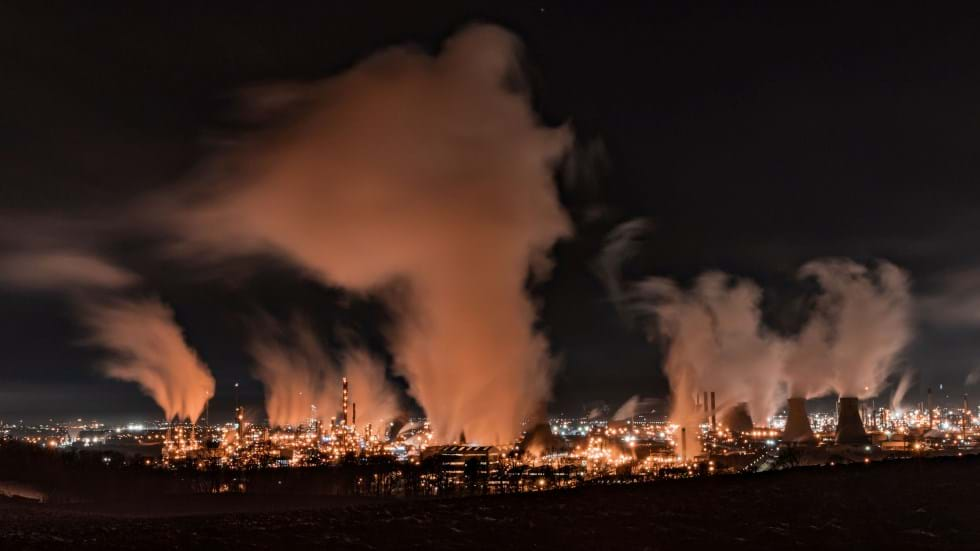Sir Jim Ratcliffe warns that UK carbon policies are killing manufacturing

INEOS chief Sir Jim Ratcliffe has called for the UK government to rethink its carbon reduction policy, warning that efforts to decarbonise major emitters risk causing plant closures and job losses.
“This week, INEOS Grangemouth faces yet another tax bill for carbon dioxide emissions, this time for £15m (US$20m),” said Ratcliffe. Each year, operators covered by the UK’s emission trading scheme (ETS), including heavy industry and power generators, have to surrender carbon allowances to cover their emissions.
The £15m will cover the 400,000 t of CO2 emitted last year by the business producing power and steam for INEOS’s chemical complex in Scotland.
INEOS will have to pause investment in projects designed to make operations more efficient, Ratcliffe said, noting that the cost is “another heavy blow” coming alongside US tariffs and much higher energy prices. Earlier this month, the Chemicals Industry Association (CIA) warned that UK industry pays energy bills 400% higher than competitors in the US and 100% higher than Europe and this is contributing to a decline in domestic manufacturing.
“You only have to look at British Steel at Scunthorpe to see the impact of an uncompetitive energy policy forcing the government to spend taxpayers’ money on a rescue package,” said Ratcliffe. “We need action before we get to that stage.”
The Grangemouth refinery, in which INEOS is a joint venture partner, announced last year that it will close due to being uncompetitive. The UK government has since promised £200m to repurpose the site into a green manufacturing hub.
Free permits for major emitters

The ETS scheme does include free permits to protect heavy industry from the risk of so-called carbon leakage, where carbon reduction policies make manufacturers uncompetitive and force domestic manufacturing overseas.
INEOS sustainability director Colin Pritchard told TCE: “From 2005 to 2024 our emissions have reduced upwards of 60%. Some has come from closure and some has come from investments. We’ve done a lot but it’s getting harder. The low hanging fruit has gone.”
The Grangemouth refinery and the chemicals complex both receive free allocations under the scheme.
“In terms of free allocations for the chemicals business, it covers about 55% of emissions on average. So, the chemicals business is exposed to 45% of the cost of emissions. That cost would have cost us around €1m [ten years ago], today it exposes us to tens of millions of euros.”
He said the policy is failing to protect the business from international competition as manufacturers in the US and Middle East do not have to cover the same costs.
Steve Elliott, CEO of the CIA, told TCE that since the ETS was introduced in 2021 no UK sites have been able to switch away from natural gas.
“Some 40% of the emissions reduction is directly due to closures in our sector, for example ammonia, ethanol, MMA – so many key, strategic building blocks to the rest of the chemicals supply chain and beyond.”
The UK government has launched various consultations on carbon policy since ETS was introduced. This includes free allocation reviews, extending ETS to greenhouse gas removal technologies, and extending the scheme beyond 2030.
Elliott said: “The UK should proceed with its extension of the UK ETS post 2030 only if it can be shown to be effective in delivering on its main objective – decarbonising industry.
“We have seen several consultations relating to UK’s carbon policy but very little decision on both carbon pricing and more importantly carbon leakage protection measures. This uncertainty does nothing to bring forward investment for which long-term policy certainty and stability is necessary.”
Ratcliffe also called on government to reconsider its approach.
“We are calling for a rethink. Not to walk away from climate goals, but to pursue them in a way that allows British businesses to lead the transition.
“Give us competitive energy costs, give us the incentives to invest in new assets and to play our part in building a strong sustainable industrial future.”
Earlier this month, the CIA released figures from member companies showing that the chemicals industry workforce is now 10% lower than it was in 2023 and that a third of businesses expect to make more staff redundant in the next 12 months.
Recent Editions
Catch up on the latest news, views and jobs from The Chemical Engineer. Below are the four latest issues. View a wider selection of the archive from within the Magazine section of this site.




